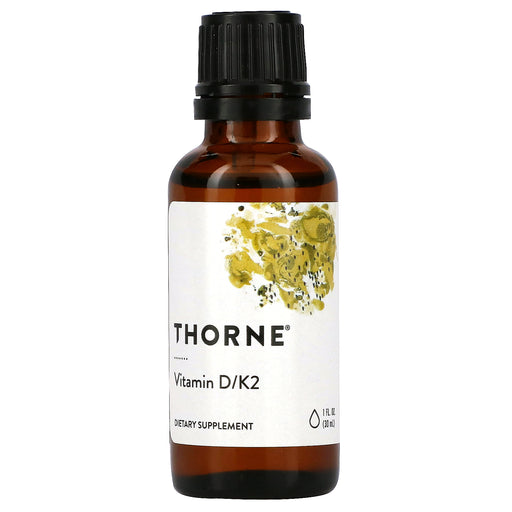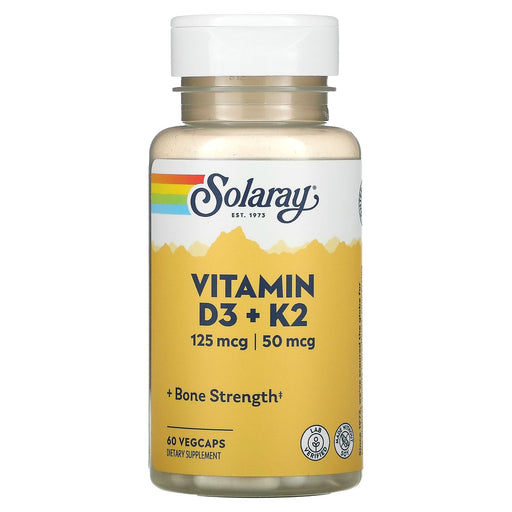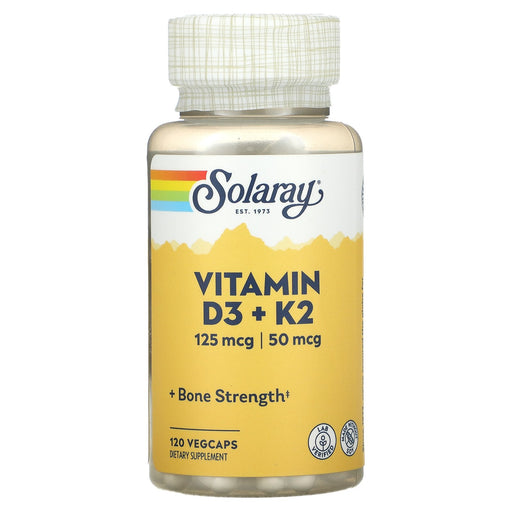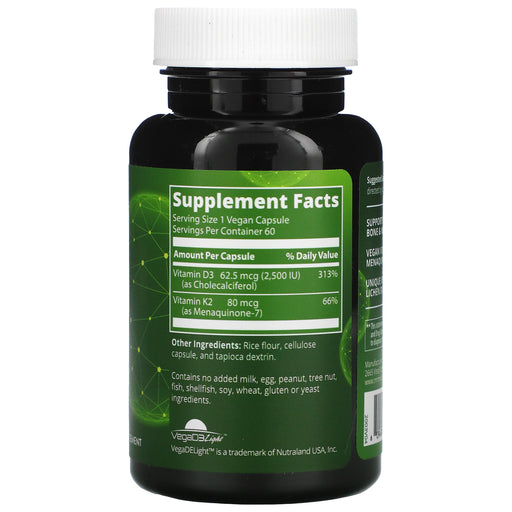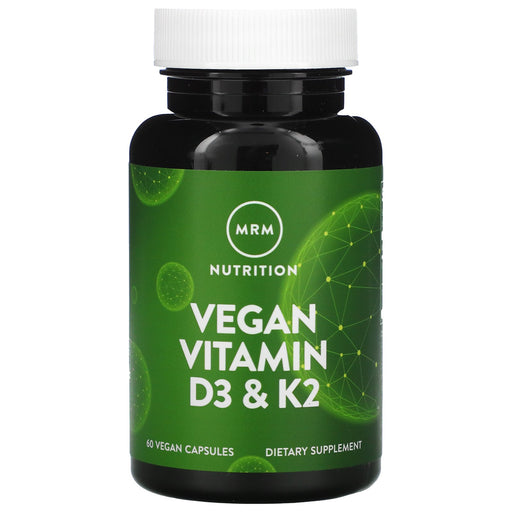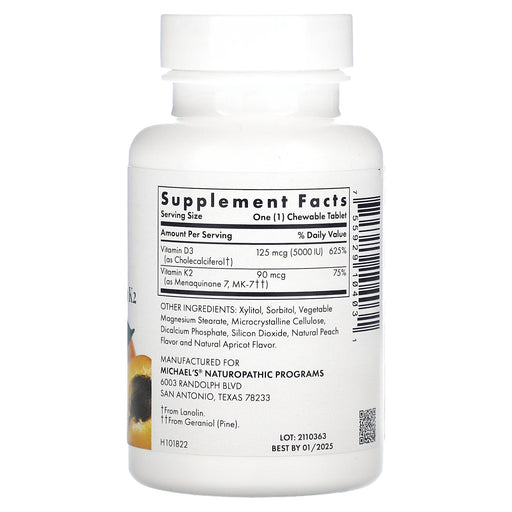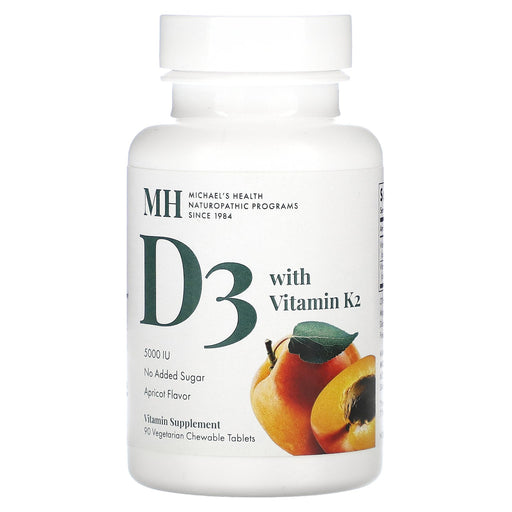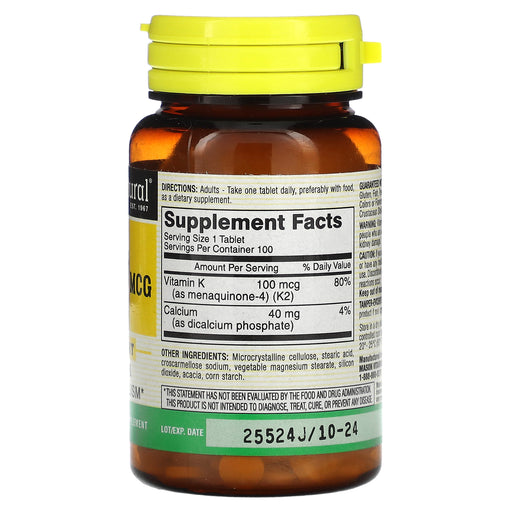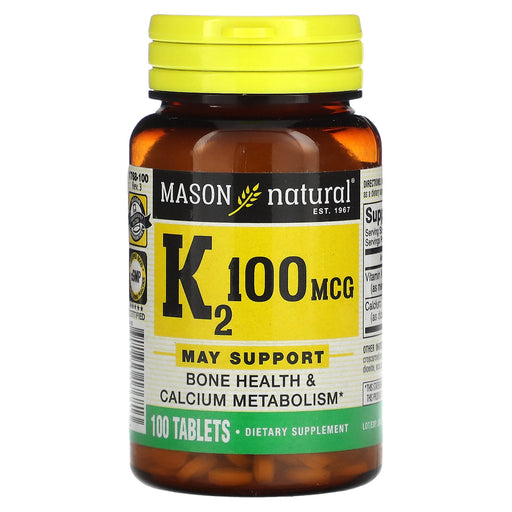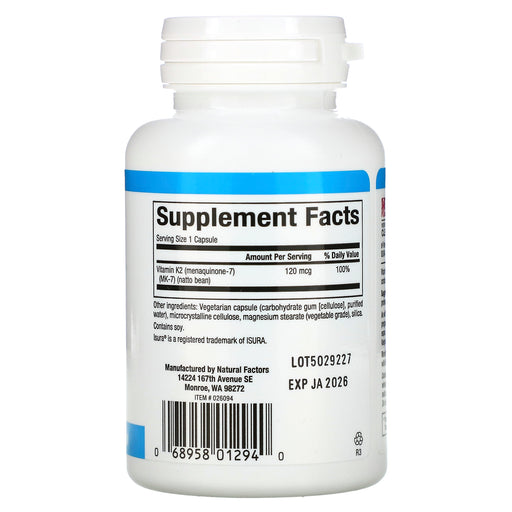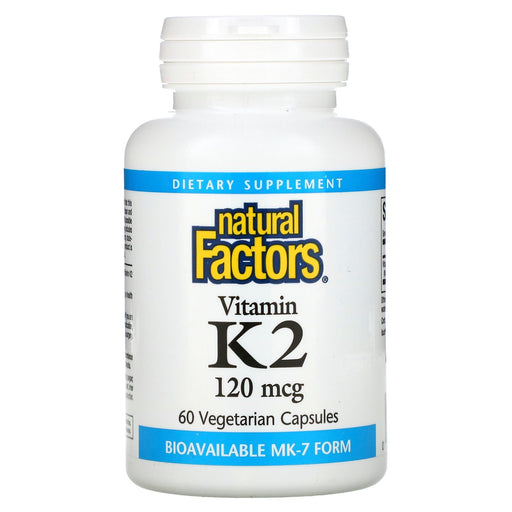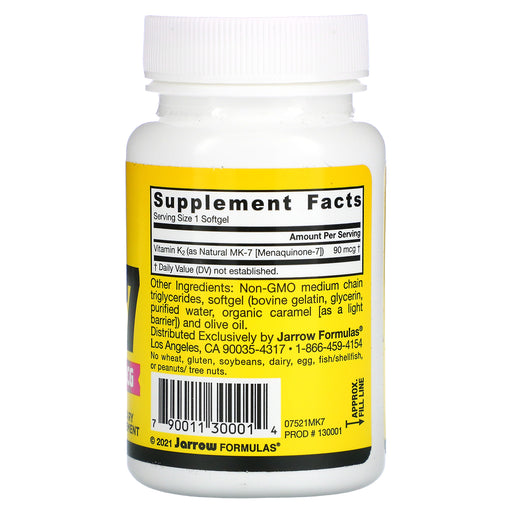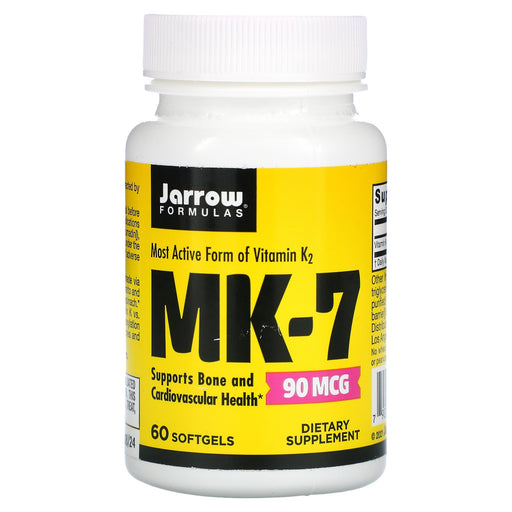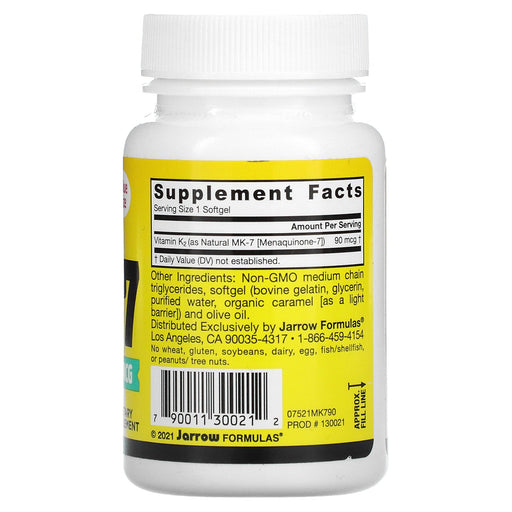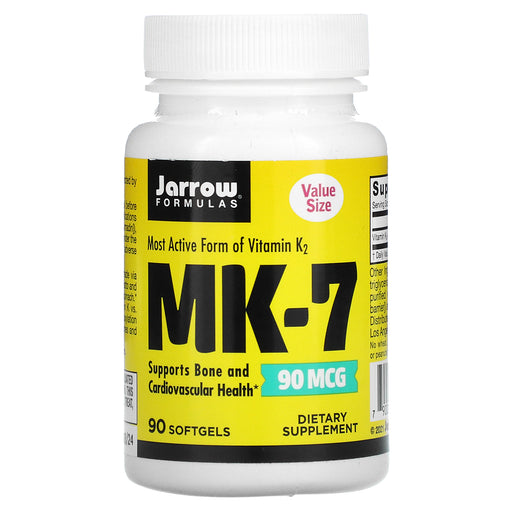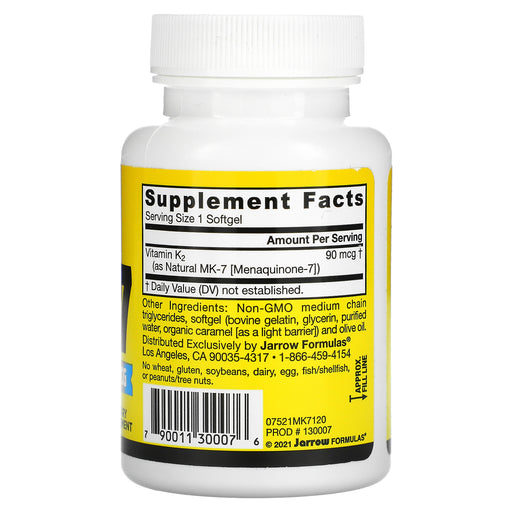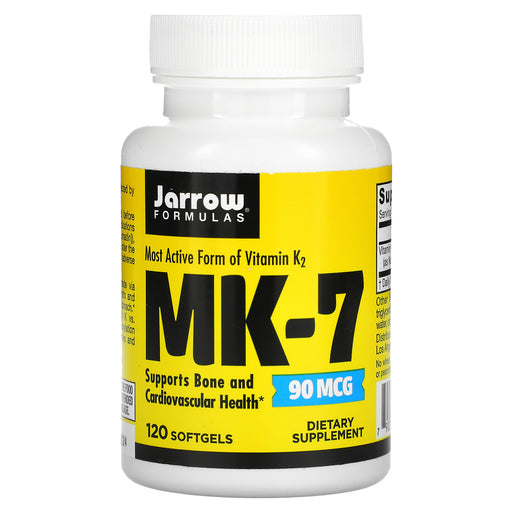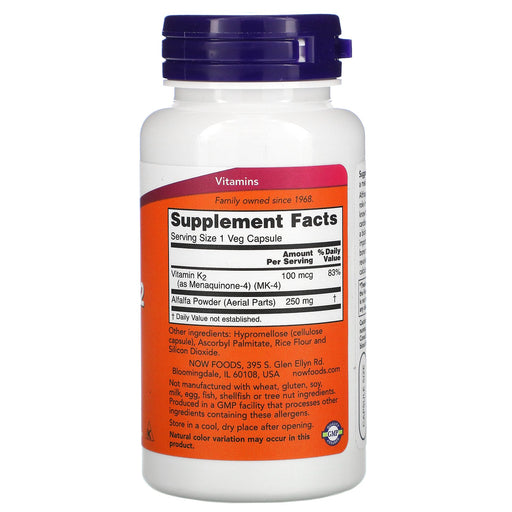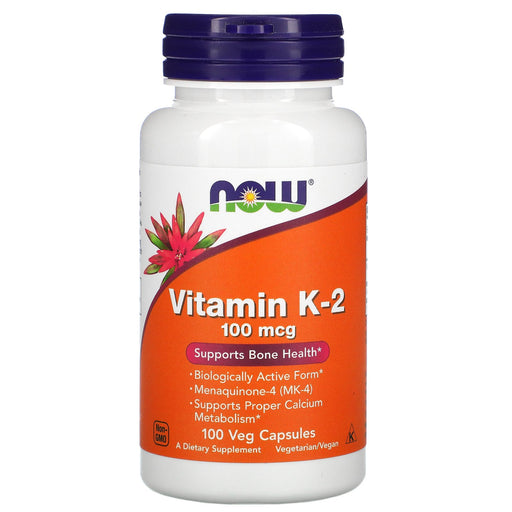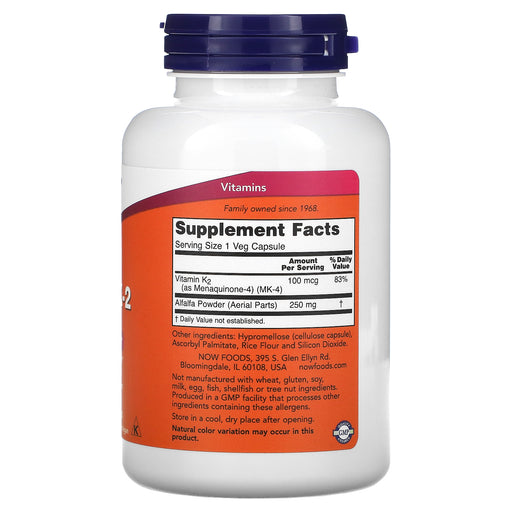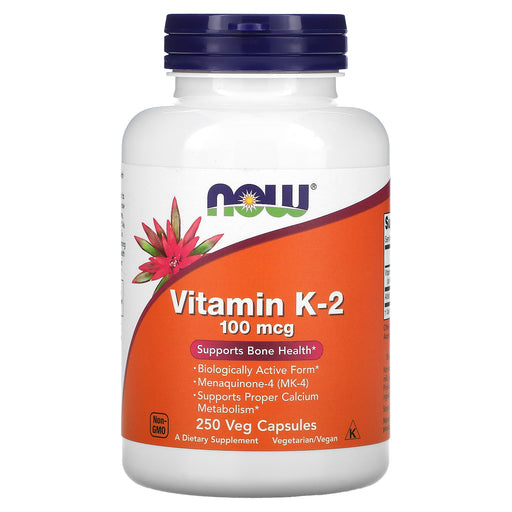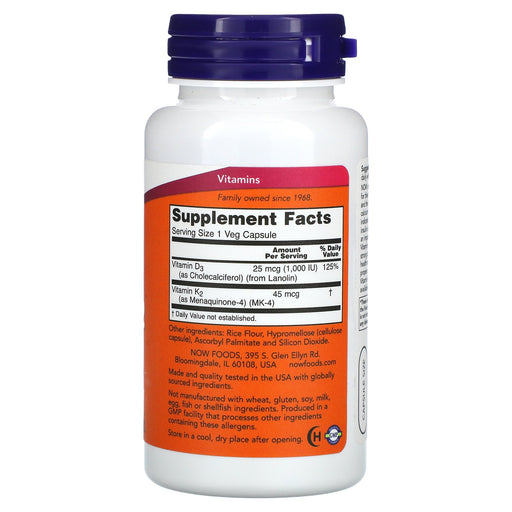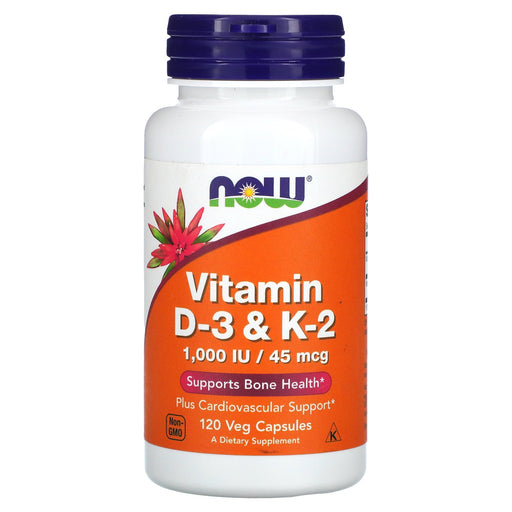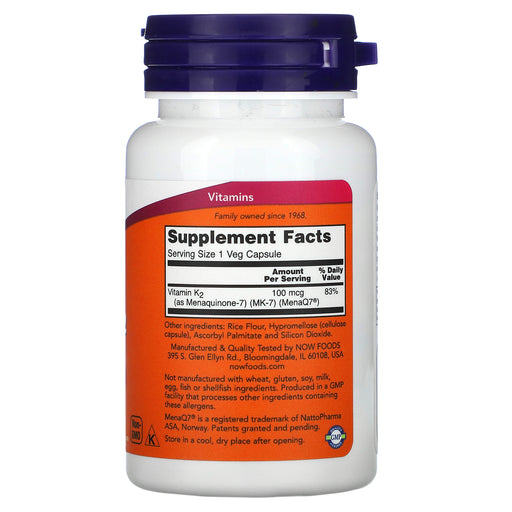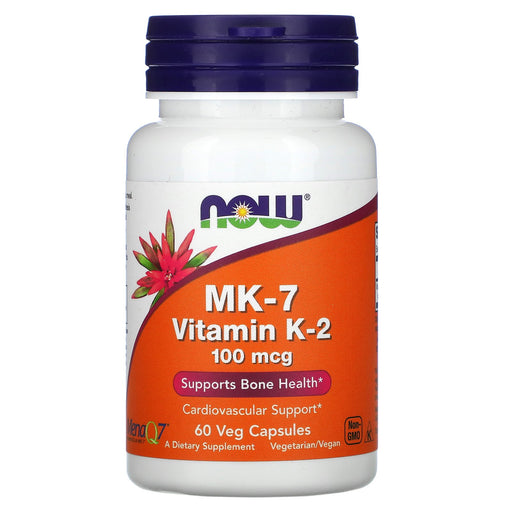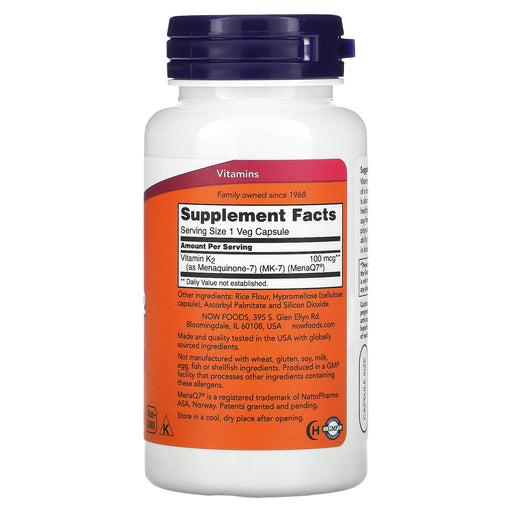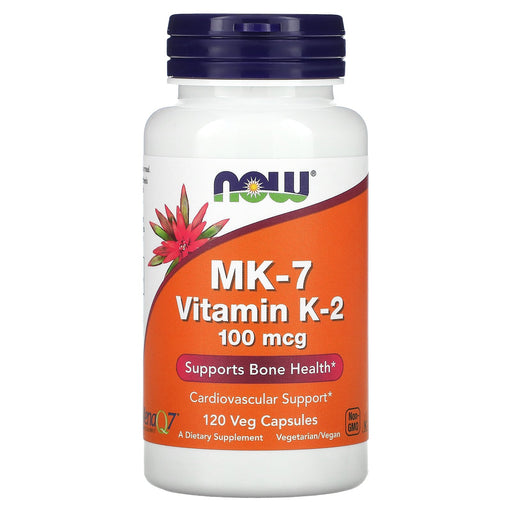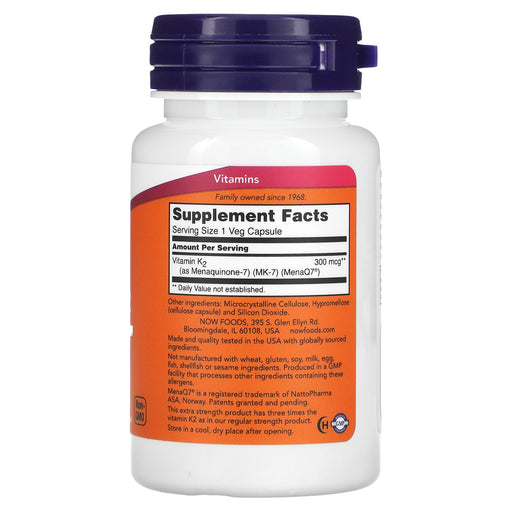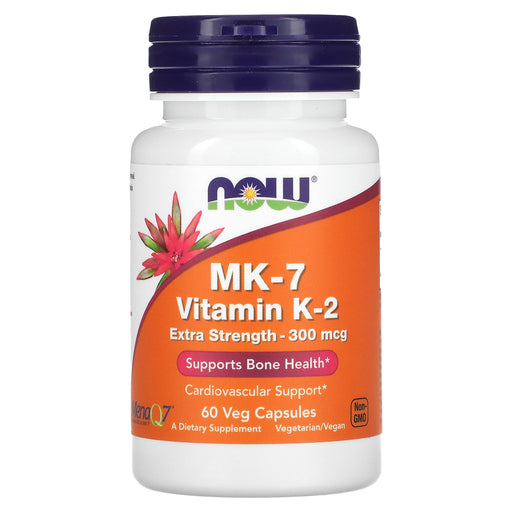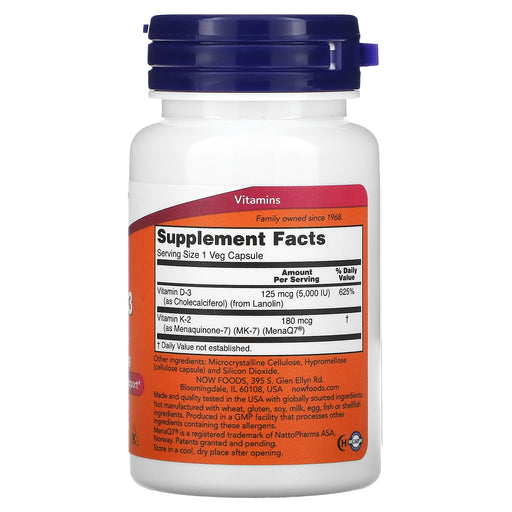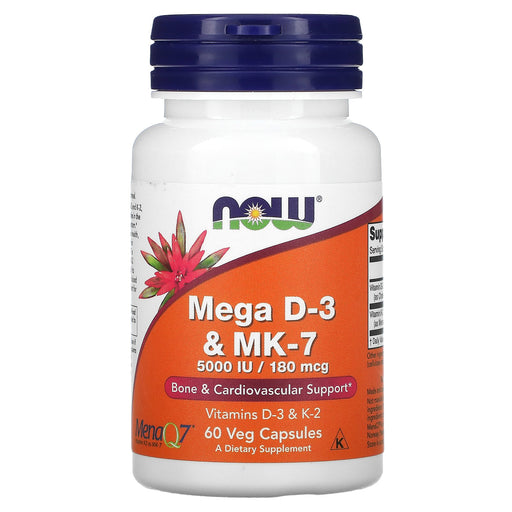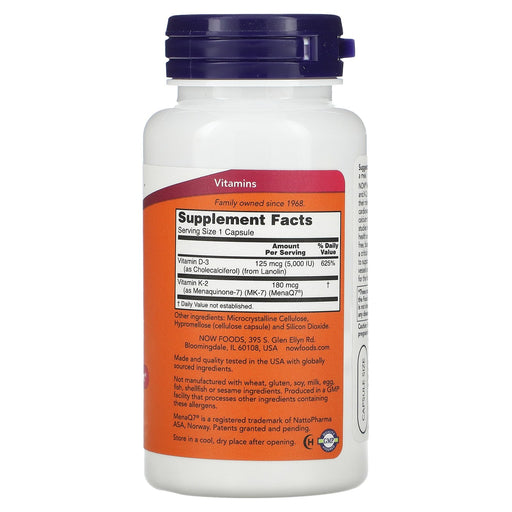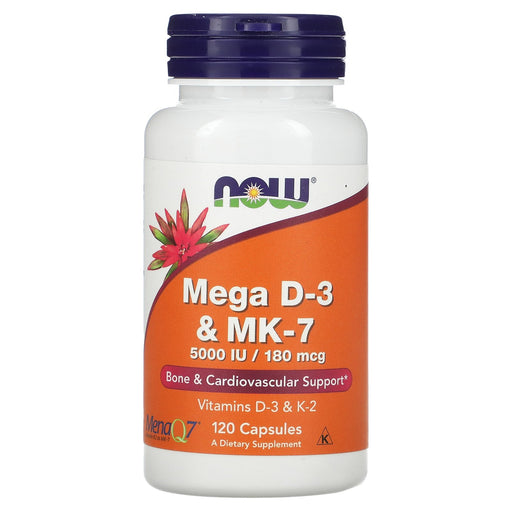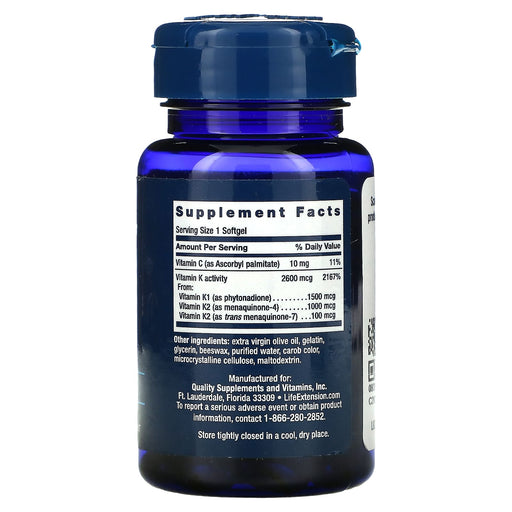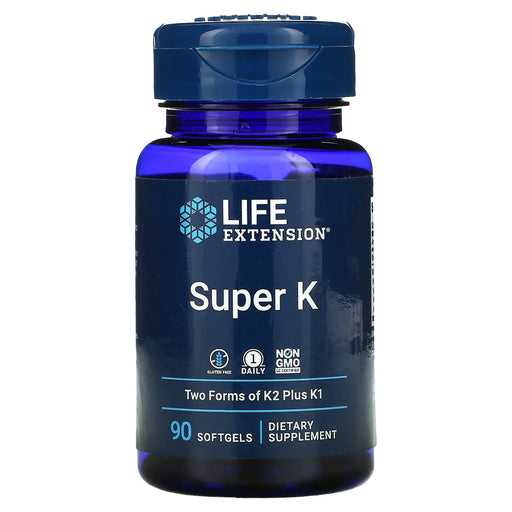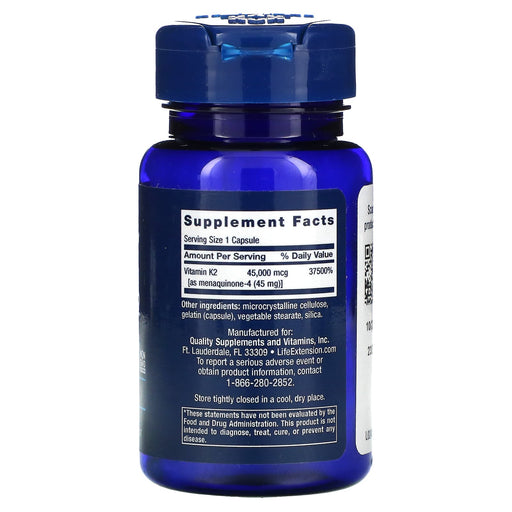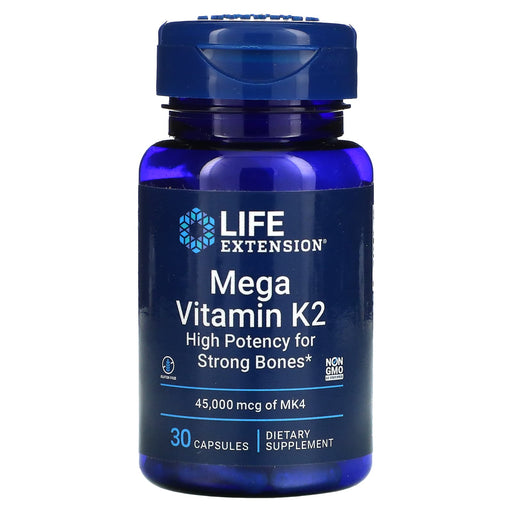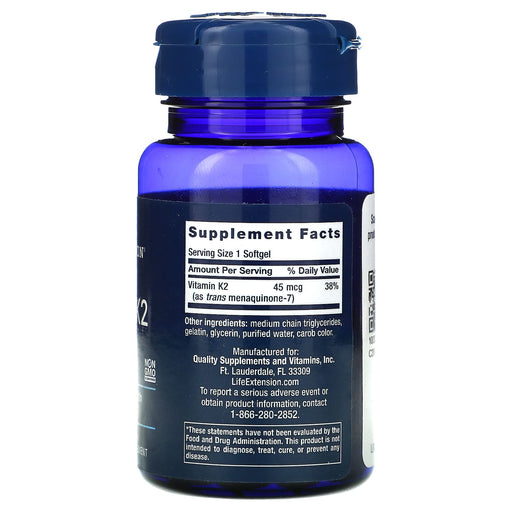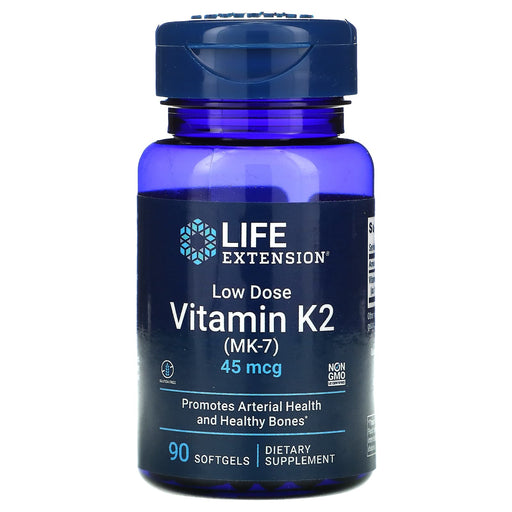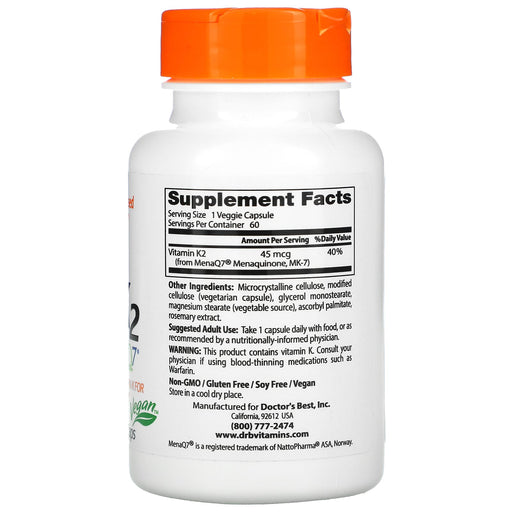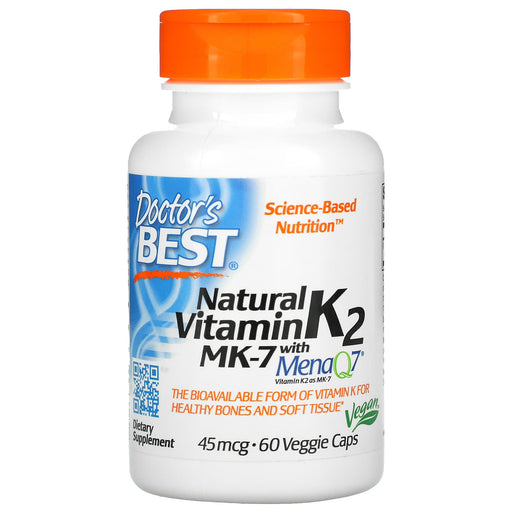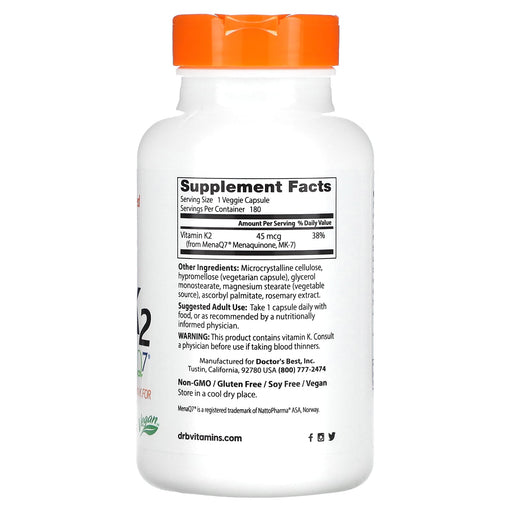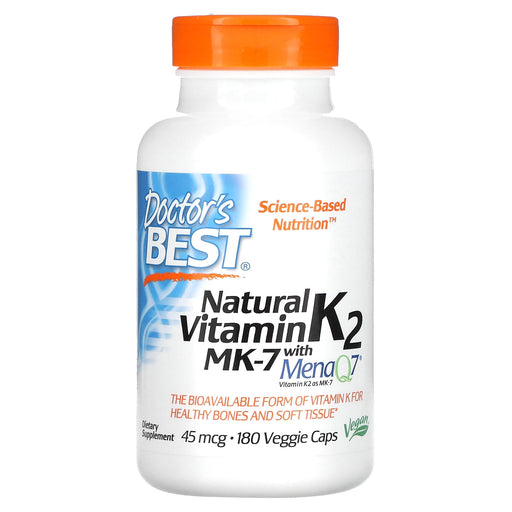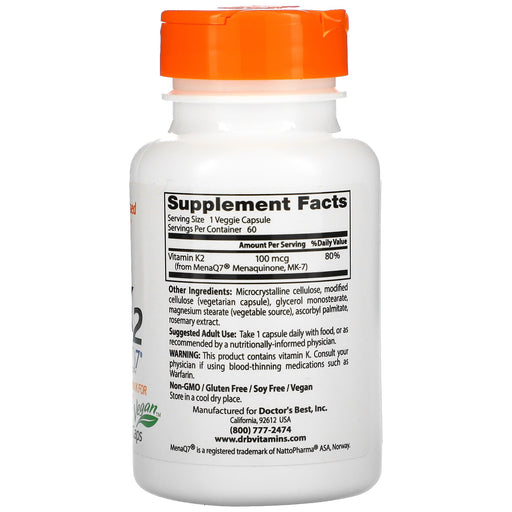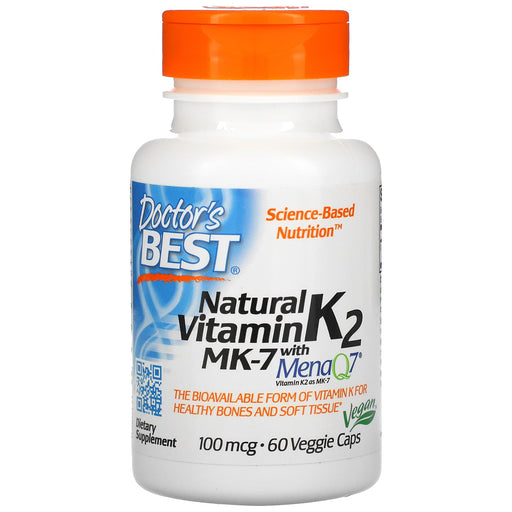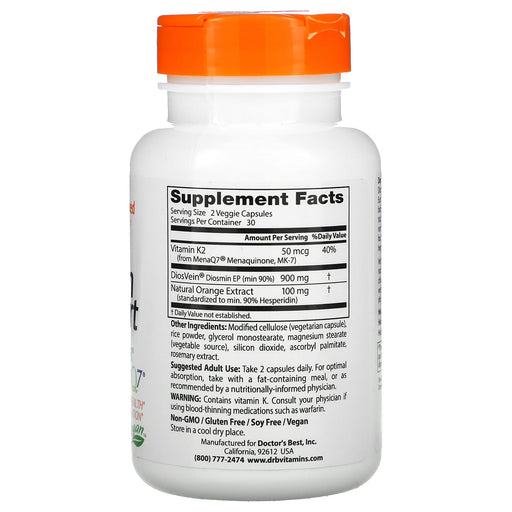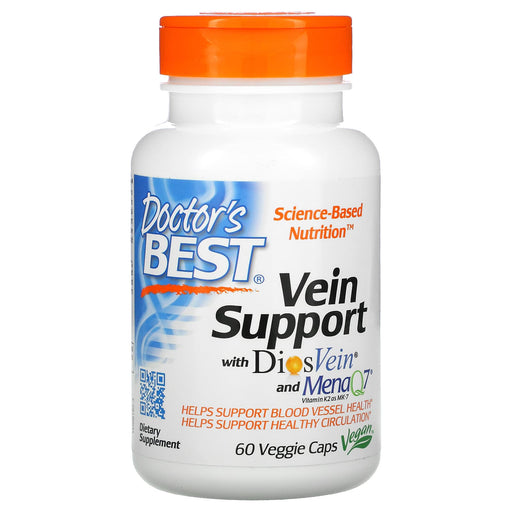
The Unsung Hero for Bone Health, Blood Clotting, and More
Vitamin K is a fat-soluble vitamin that plays a crucial role in several aspects of health, including bone metabolism, blood clotting, and cardiovascular function. Despite its importance, Vitamin K often goes unnoticed in the world of nutrition. By ensuring an adequate intake of this essential nutrient, you can support your body's natural processes, maintain strong bones, and optimize overall well-being.
Understanding the Benefits of Vitamin K
Vitamin K exists in two main forms: Vitamin K1 (phylloquinone), found primarily in leafy green vegetables, and Vitamin K2 (menaquinone), found in fermented foods and animal products. Both forms offer unique health benefits:
- Bone Health: Vitamin K, particularly Vitamin K2, is essential for the activation of osteocalcin, a protein that helps bind calcium to the bone matrix. Adequate Vitamin K intake helps maintain strong bones and may reduce the risk of osteoporosis and fractures.
- Blood Clotting: Vitamin K is necessary for the production of several blood clotting factors, which help prevent excessive bleeding and promote wound healing.
- Cardiovascular Health: Some studies suggest that Vitamin K, especially Vitamin K2, may help support cardiovascular health by reducing the risk of calcium buildup in the arteries (arterial calcification), a condition associated with increased risk of heart disease.
- Dental Health: Vitamin K2 may play a role in maintaining healthy teeth by activating osteocalcin in tooth dentin, helping to prevent tooth decay and support overall dental health.
- Insulin Sensitivity: Emerging research indicates that Vitamin K may help improve insulin sensitivity and glucose metabolism, which may have implications for the prevention and management of type 2 diabetes.
Vitamin K and Related Nutrients
To maximize the benefits of Vitamin K supplementation, consider pairing it with related nutrients that work synergistically to support overall health and well-being, such as:
- Vitamin D: Vitamin D works together with Vitamin K to support bone health by regulating calcium absorption and metabolism. Combining Vitamin K with Vitamin D supplements can provide a powerful duo for maintaining strong bones and teeth.
- Calcium: Vitamin K is essential for the proper utilization of calcium in the body, directing it to the bones and teeth rather than soft tissues. Pairing Vitamin K with Calcium supplements may enhance its bone-supportive benefits.
- Magnesium: This essential mineral plays a role in bone health and may help enhance the effects of Vitamin K on bone metabolism. Look for Vitamin K supplements that include Magnesium for added bone health support.
Choosing High-Quality Vitamin K Supplements
When selecting a Vitamin K supplement, it's essential to choose a high-quality product from a reputable brand. Consider the following factors:
- Form of Vitamin K: Look for supplements that provide Vitamin K2, particularly in the form of MK-7 (menaquinone-7), as this is the most bioavailable and effective form of Vitamin K for bone health and overall well-being.
- Optimal Dosage: Choose supplements that provide an appropriate dosage of Vitamin K based on your age, sex, and health status. While there is no established recommended daily allowance (RDA) for Vitamin K, most studies suggest that 100-200 mcg of Vitamin K2 per day is beneficial for bone health and overall well-being.
- Purity and Quality: Opt for supplements manufactured in GMP-certified facilities, free from contaminants and fillers, and third-party tested for purity and potency.
- Brand Reputation: Select supplements from trusted brands with a history of producing effective, science-backed nutritional products.
Incorporating Vitamin K Supplements into Your Health Regimen
To maximize the benefits of Vitamin K supplementation, consider the following tips:
- Pair with a Balanced Diet: While Vitamin K supplements can help ensure adequate intake, they should be used in conjunction with a balanced diet that includes Vitamin K-rich foods, such as leafy greens, fermented foods, and grass-fed animal products.
- Consider Your Individual Needs: Certain health conditions, such as liver disease or malabsorption disorders, may increase your need for Vitamin K supplementation. Consult with a healthcare professional to determine the appropriate dosage for your specific needs.
- Be Mindful of Interactions: Vitamin K supplements can interact with certain medications, particularly blood thinners like warfarin. Always inform your healthcare provider about any supplements you are taking to avoid potential interactions.
Support Bone Health and Overall Well-Being with Vitamin K
Ready to experience the essential benefits of Vitamin K for bone health, blood clotting, and overall well-being? Experience our collection of premium Vitamin K supplements and take the first step towards optimal health and vitality.
Our Vitamin K products are carefully formulated with high-quality, bioavailable ingredients, particularly Vitamin K2 in the form of MK-7, to ensure maximum absorption and effectiveness. Whether you're looking to support strong bones and teeth, maintain healthy blood clotting, or promote overall well-being, our supplements can help you achieve your health goals.
Invest in your health and well-being with the unsung hero of Vitamin K. Browse our collection today and unleash the potential of this essential nutrient for your overall health and vitality.
Frequently Asked Questions about Vitamin K
1. What is vitamin K supplement good for?
Vitamin K supplements can provide various health benefits, including:
- Blood clotting: Vitamin K is essential for the production of clotting factors, which help prevent excessive bleeding
- Bone health: Vitamin K helps activate proteins involved in bone metabolism, promoting bone formation and reducing bone loss
- Heart health: Adequate vitamin K intake may help reduce the risk of cardiovascular disease by preventing calcium buildup in arteries
- Cognitive function: Some studies suggest that vitamin K may play a role in maintaining cognitive performance in older adults
- Skin health: Vitamin K may help improve skin elasticity and reduce dark circles under the eyes
Vitamin K supplements can be particularly beneficial for individuals with low dietary intake or certain health conditions that impair vitamin K absorption or utilization.
2. What is the best vitamin K to take?
The best form of vitamin K supplement may depend on individual needs and preferences. The two main forms of vitamin K are:
- Vitamin K1 (phylloquinone): Found primarily in plant-based sources, such as leafy greens
- Vitamin K2 (menaquinone): Found in animal-based and fermented foods, as well as produced by gut bacteria
Vitamin K2 supplements, particularly the MK-7 form, have gained popularity due to their longer half-life and potential benefits for bone and cardiovascular health.
3. Should you take vitamin K everyday?
The need for daily vitamin K supplementation depends on individual factors, such as dietary intake and health status. The recommended daily intake (RDI) for vitamin K is:
- 120 mcg for adult men
- 90 mcg for adult women
Most people can obtain sufficient vitamin K through a balanced diet that includes leafy greens, vegetables, and fermented foods. However, some individuals may benefit from daily supplementation, such as:
- Those taking certain medications that interfere with vitamin K absorption or metabolism
- Individuals with digestive disorders that impair fat absorption
- People following restrictive diets with limited vitamin K sources
Consult with a healthcare professional to determine if daily vitamin K supplementation is necessary based on your individual needs and health status.
4. Who should not take vitamin K?
While vitamin K supplements are generally safe, some individuals should exercise caution or avoid them:
- People taking blood thinners: Vitamin K can interfere with the effectiveness of anticoagulant medications like warfarin, increasing the risk of blood clots
- Individuals with certain health conditions: Those with kidney disease or liver damage should consult a healthcare professional before taking vitamin K supplements
- People allergic to vitamin K: Although rare, some individuals may experience an allergic reaction to vitamin K supplements
- Pregnant or breastfeeding women: Should consult with a healthcare provider before taking any supplements, including vitamin K
Always consult with a qualified healthcare professional before starting a vitamin K supplement regimen to ensure safety and appropriateness for your individual needs.
5. Is vitamin K bad for kidney disease?
Vitamin K itself is not inherently harmful to individuals with kidney disease. However, some concerns may arise:
- Vitamin K and blood thinners: People with kidney disease are at increased risk of blood clots and may be prescribed blood thinners like warfarin. High vitamin K intake can interfere with the effectiveness of these medications, making it crucial to maintain consistent vitamin K consumption and monitor blood clotting factors closely.
- Vitamin K2 supplements and calcification: Some studies suggest that high doses of vitamin K2 supplements may contribute to the progression of vascular calcification in individuals with advanced kidney disease. However, more research is needed to confirm this association.
It's essential for individuals with kidney disease to consult with their healthcare provider before taking vitamin K supplements or making significant changes to their vitamin K intake, as individual needs may vary based on the stage of kidney disease and other health factors.
6. What are the symptoms of low vitamin K?
Vitamin K deficiency is relatively rare in healthy adults, but some signs and symptoms may include:
- Easy bruising or bleeding
- Bleeding gums or nosebleeds
- Blood in the urine or stool
- Menstrual bleeding that is heavier or lasts longer than usual
- Gastrointestinal bleeding
- Osteoporosis or increased fracture risk
- Skin changes
If you experience any of these symptoms or suspect a vitamin K deficiency, consult with a healthcare professional for proper diagnosis and treatment.
7. How do I know if I need vitamin K?
Determining if you need vitamin K supplementation may involve considering several factors:
- Dietary intake: Assess your consumption of vitamin K-rich foods, such as leafy greens, vegetables, and fermented foods. If your diet is lacking in these sources, you may be at risk of deficiency.
- Medication use: Certain medications, like antibiotics or blood thinners, can interfere with vitamin K absorption or metabolism. If you take these medications, your healthcare provider may recommend monitoring your vitamin K levels or adjusting your intake.
- Health conditions: Some digestive disorders, such as celiac disease or ulcerative colitis, can impair vitamin K absorption. Liver disease or kidney disease may also affect vitamin K metabolism.
- Blood clotting tests: In some cases, your healthcare provider may recommend blood tests to assess your clotting factors and determine if you have a vitamin K deficiency.
- Bone health: If you have a history of osteoporosis or fractures, your healthcare provider may evaluate your vitamin K status as part of your overall bone health assessment.



